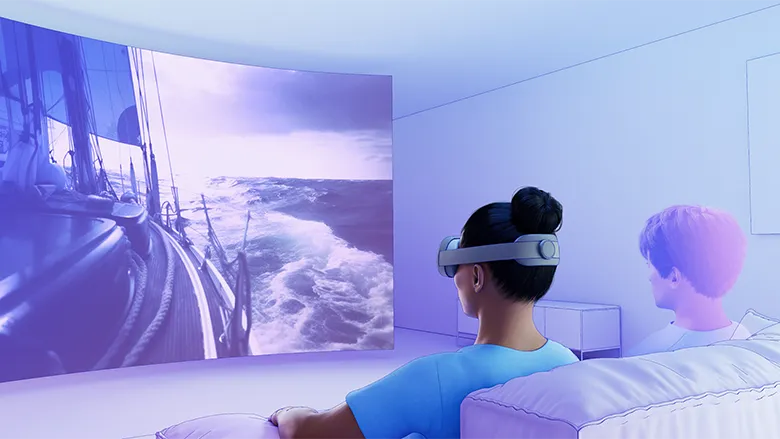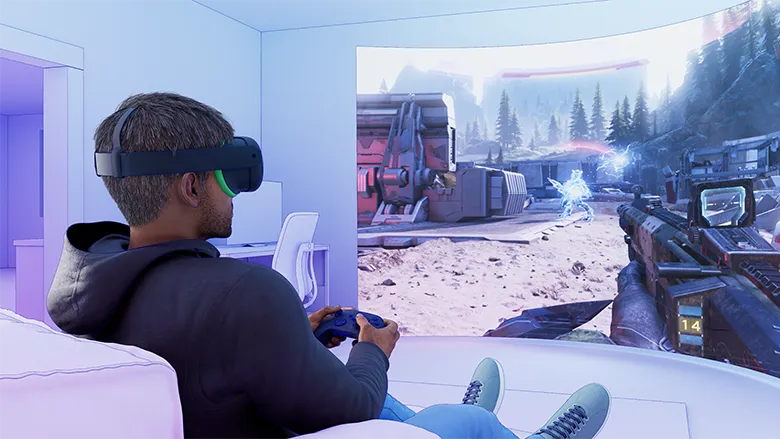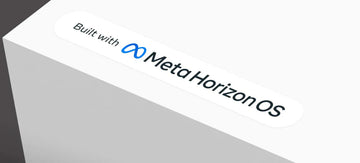Meta takes a bold turn by restructuring its Quest software platform, now renamed Meta Horizon OS.
This new initiative is not limited to a mere name change; it marks a significant opening to third-party headset manufacturers, promising considerable expansion in the mixed reality ecosystem.
The new headsets equipped with Meta Horizon OS will be recognizable by their "Built with Meta Horizon OS" sticker, a sign of quality and deep integration with the platform's services. Users will benefit from the same core services provided on Meta Quest headsets, including advanced tracking technology, mixed reality, and access to the renowned app store, now called the Meta Horizon Store.

Meta continues to develop its own range of headsets under the Quest brand, but now also opens up the field with successful collaborations with ASUS and Lenovo:
- ASUS is launching a high-performance gaming headset under its Republic of Gamers (ROG) brand.
- Lenovo is developing a series of headsets aimed at productivity, learning, and entertainment.
These initiatives are just the beginning, as in February, Meta also announced a strategic XR collaboration with LG, anticipating the development of next-generation devices.
Mark Zuckerberg, CEO of Meta, envisions various optimized usage scenarios for these new headsets, ranging from an ultra-light model ideal for work, to one dedicated to immersive entertainment with high-resolution OLED screens, and versions specifically designed for gaming or physical exercise.
Integration with other tech giants does not stop there, as Meta is also collaborating with Microsoft's Xbox division to create a limited edition Meta Quest headset, which would include an Xbox controller.

This strategic reorientation comes shortly after Google unsuccessfully attempted to persuade Meta to abandon its platform in favor of the upcoming Android XR. With several major companies already aligned with Horizon OS, Meta deals a heavy blow to Google's ambitions, notably by winning over Lenovo, which was Google's original partner for its Daydream VR platform.
Meta also expresses a desire to see Google integrate its Play Store for 2D Android apps into Horizon OS, highlighting a willingness to collaborate but also to compete in the XR platform space. The coming years will determine whether Meta or Google will dominate this nascent market, in a context where tech history teaches us that only one open system may coexist alongside Apple's closed offering in the XR space. The battle is just beginning.





